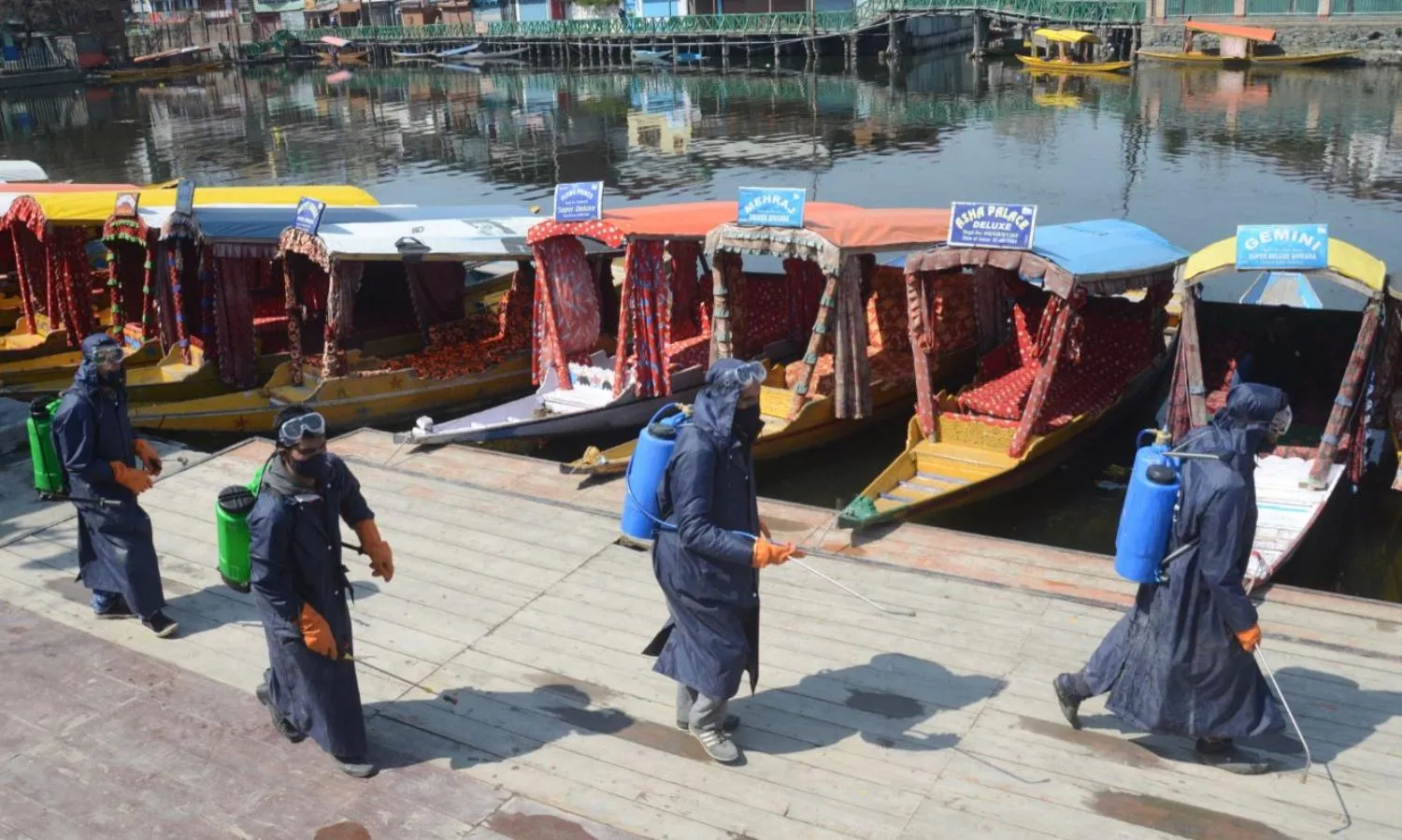COVID-19 'Health Emergency': Civil Society Appeal to Govts to Set Up Relief Committees
Measures needed now

Around 50 citizens—among them activists and academics—have appealed to the Centre and state governments to form national and state level COVID-19 coordination and relief committees in order to address the health crisis. These committees are to include experts, administrators, elected leaders and civil society representatives.
“The growth of Corona virus in India will become completely out of hand if it gets out among the urban poor and into rural areas. Before that we need to work,” the appeal reads. India recorded its fourth official death due to coronavirus on March 19. Over 170 positive cases have been recorded in the country at present.
The five-point appeal by civil society members, including Aruna Roy, Nikhil Dey, Meera Sanghamitra and Syeda Hameed among others, requests the government to consider various economic and social welfare measures, including opening more testing centres, assuring availability of food and medicine to all, and providing clear instructions on home quarantine and sanitization of vehicles and spaces.
The appeal requests that companies, institutions, resident welfare associations, and families be directed to pay a certain amount of the salary to all employees. With health experts prescribing precautionary social distancing to stem the rapid spread of the virus, many individuals, especially daily wage labourers employed on a casual basis, face the risk of being out of work with no pay.
“As socially and economically vulnerable groups suffer most in such situations, appeal to the public conscience to be considerate and activate governmental mechanisms for such groups,” the appeal states. It further asks that each state government employ a subsistence scheme for drivers and construction workers.
Prime Minister Narendra Modi, in his first nation-wide address on the Coronavirus on March 19, requested people to not cut the salary of household help who are unable to come to work.
Addressing the adverse impacts of the COVID-19 outbreak on the economy, the appeal requests Central and State governments to temporarily prohibit all forms of evictions, “be it due to non-payment of rents and confiscation or other punishments due to non-payment of loans, esp for small amounts”, as many people would possibly be unemployed in the coming days.
The appeal further suggests that the Reserve Bank of India (RBI) and other banks waive off banking charges and minimum balance payments for individual borrowers and Small and Medium Enterprises (SMEs).
PM Modi, in his public address, stated that a COVID-19 Economic Response Task Force will be set up, headed by the Finance Minister, to take all decisions regarding the economy during the fight against the pandemic.
The appeal also requests the government to “make a commitment and declaration that no one will suffer without food or medicine in the country”. For the same, it suggests that small enquiry teams and home delivery teams be set up along with a storage system for agricultural produce to deal with “under-availability” and “over-purchase” of food.
On this note, PM Modi attempted to reassure citizens today, stating “There will be no disruption in sale of essential commodities. I request all not to resort to panic buying.”
The appeal further asks all states to set up more testing centres, both public and private. In case of rapid transmission of the virus and rise in cases, the appeal suggests that private hospitals’ infrastructure be taken over to address the “health emergency”. It also calls for special care to be taken for the safety of all healthcare professionals.
Signatories further urge for special units to be started and more people to be enlisted for the skilled, semi-skilled and unskilled work involved in addressing this crisis.
In order to address a possibility of shortage of funds, the appeal suggests that money be collected through relief funds and a contingency fund be created for the coronavirus health emergency.
Addressing the “struggles”, in reference to the anti-CAA protests, that continue across the country even after the COVID-19 pandemic was declared, the appeal has asked the government to reassure protestors during this “humanitarian crisis”.
Earlier, the Delhi government had announced that no gathering—whether religious, social, family, political or cultural—of more than 50 persons would be allowed till March 31. On March 19, the state government revised the guideline, prohibiting assembly of more than 20 people at a time to prevent community transmission of the virus.
While some demonstrations have been called off, protestors continue to gather at Shaheen Bagh and various other locations. The civil society members’ five-point appeal has asked the government to “keep aside all decisions that might create fear or antagonism in the minds of the people for now.”
“The entire government machinery should work to keep the people of the country together... We are certain that if the government takes the lead in all sincerity, people will respond- it is the easiest, most ethical and effective way ahead,” states the appeal.
Cover Photograph BASIT ZARGAR: Shikaras being sanitised in Kashmir, Srinagar



